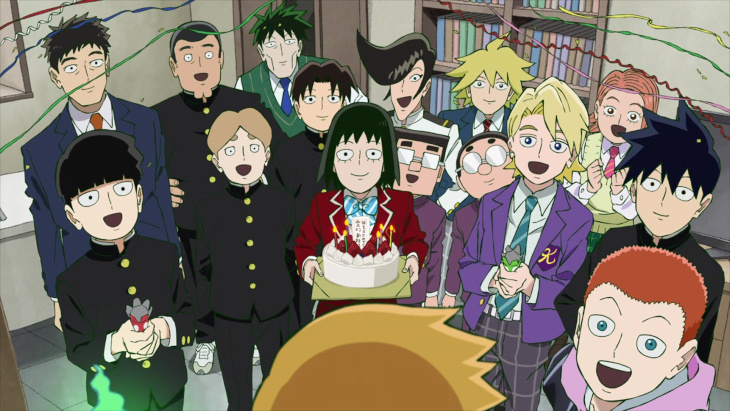
“Just between you and me, I absolutely despise the other side I’m hiding…but it’s because of my lies that you came into my life.”
I tend to get antsy when I give a premiere a particularly positive score. The looming threat of it not living up to expectations is always worrying, even if it is a new season of an already proven property like Mob Psycho. Really, that just introduces the sneaking suspicion that you’re grading it more on the hype built by previous entries, and not on the merits of this new chapter. Well, I’m glad to say that Mob Psycho 100’s third season not only builds on the stellar thematic elements and storytelling of the prior seasons, but arguably surpasses them. As I said back when this season kicked off, I didn’t realize there was more story for Mob Psycho 100 to tell, but dear god, this season’s story was worth telling. The best was yet to come. Mob Psycho 100’s third season somehow succeeds in being the greatest installment of a series that already had a reasonable claim to being among the best anime of all time. I find it strange to walk away from a show wondering if I was somehow underselling it by simply calling it a masterpiece. I’ll often throw out seasonal “awards” to encapsulate my feelings on a show in a bite-sized chunk, but Mob Psycho 100 III takes home the award for “Best Anime of the Year and Possibly the Past Decade.”
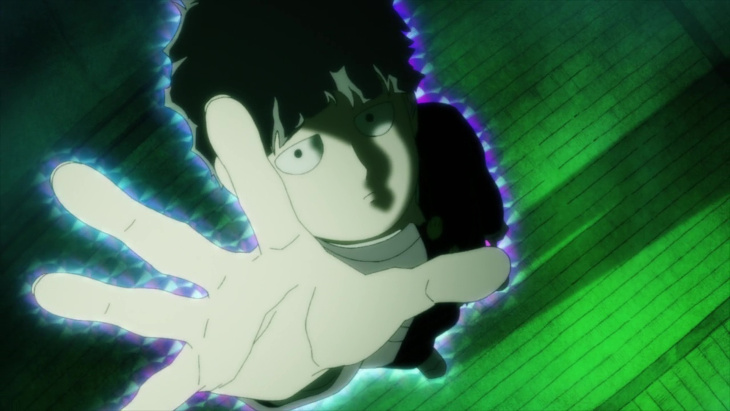
The third season primarily orbits the same themes that have defined the show since its inception, exploring one’s sense of identity and coming to accept who you are. My reason for assuming that season 2 was intended as the finale came down to the assumption that Claw was the primary antagonistic force for the series. Since they were dealt with in that season’s finale, it seemed natural to assume the show had concluded. However, that entire train of thought was anchored by a faulty perspective. None of our protagonists’ character arcs were defined by external forces. Dimple is shaped by the belief that he should receive affirmation for the power he possesses. Reigen is characterized by his tendency to hide his insecurities behind a mask of confidence and lies. And most prominently, Mob’s entire character is constructed around the assumption that, if he reveals his true self, both he and others will be hurt by his inner demons. These fears and insecurities are the show’s true antagonists, and season 3’s handling of these arcs makes for some of the most compelling drama in anime.
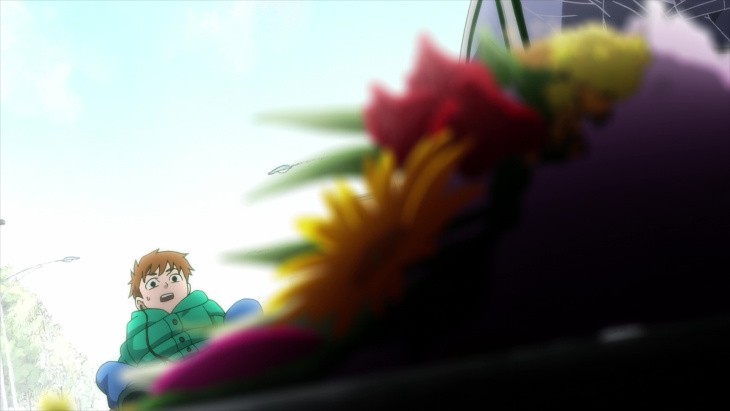
It’s a little unusual to realize how much I’ve fallen in love with these characters. For instance, I liked Reigen well enough, but he seemed like the immediate fan favorite back in season 1, and I just did not get it. His schtick was cute in small doses, but I didn’t consider him to be anything too special. Overall, I had the sense that Mob Psycho was quite good, but didn’t quite match the humor or action of its more famous brother, One-Punch Man. Comparisons to the One-Punch Man adaptation feel both appropriate given their visual, thematic and comedic similarities, but also rather quaint, as the emotional core of Mob’s journey feels more grounded and even more relatable than Saitama’s search for purpose and inspiration. Mob, at his core, wants to draw connections to the world around him, but is afraid that those connections will harm those he connects with, and in turn he will be plagued by guilt and regret. It’s a vicious cycle that speaks to anyone who felt emotionally isolated when growing up, and watching it reach its emotional conclusion is as compelling as any fight One-Punch Man could offer.
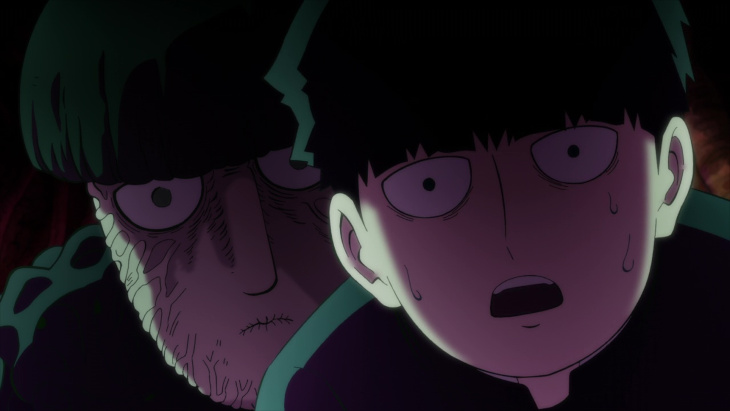
These days, my feelings on Bones as a studio are complicated. They’ve had some notable hits over the past decade, but beyond Mob Psycho 100 and My Hero Academia, I can’t say any of them interested me to any notable extent (and to say I’m behind on MHA feels like a significant understatement). However, their handling of Mob Psycho has been consistently brilliant, and this third installment is no exception. The artistic design continues to bleed trippy visuals across the screen like some demented Masaaki Yuasa fever dream. Everything from the visuals, to the music, to the voice acting is delivered perfectly. When discussing the production quality in my First Impressions review, I noted that I suspected the new OP would be my favorite yet, and I’m willing to say that prediction definitely held true. Looking back, I don’t think there was a single instance where I skipped the opening this season. By the same token, that’s no criticism of the previous opening tracks, because when those opening chords of “99” started playing in the final episode, I immediately started to well up. This show has been a perfect storm of perfect elements culminating in something truly extraordinary. In a season that featured an onslaught of truly spectacular shows, Mob Psycho 100 still came out on top, and it was a joy to be along for this ride.
Before I wrap up, a few Notes and Nitpicks:
- The last time I watched My Hero Academia, they had just rescued Bakugo from the villains. The last time I read the manga, the class was preparing for a school festival. I think it’s been a while.
- I was skimming the episode list for this season, trying to determine what episode is the weakest, because examination of such an episode can assist in highlighting a show’s weaknesses. Ultimately, I landed on episode 2, because it’s only really, really good. Honestly, my only complaints are that Harukawa Amakusa was essentially a one-off character, and the episode didn’t contribute to the overall plot as much as the others. Those are some really nitpicky complaints.
- I tried to tally the number of characters this season gave a satisfying finale to, but it was easily into the double digits. Setting aside the quality of the show overall, this might be one of the most well constructed conclusions in anime.

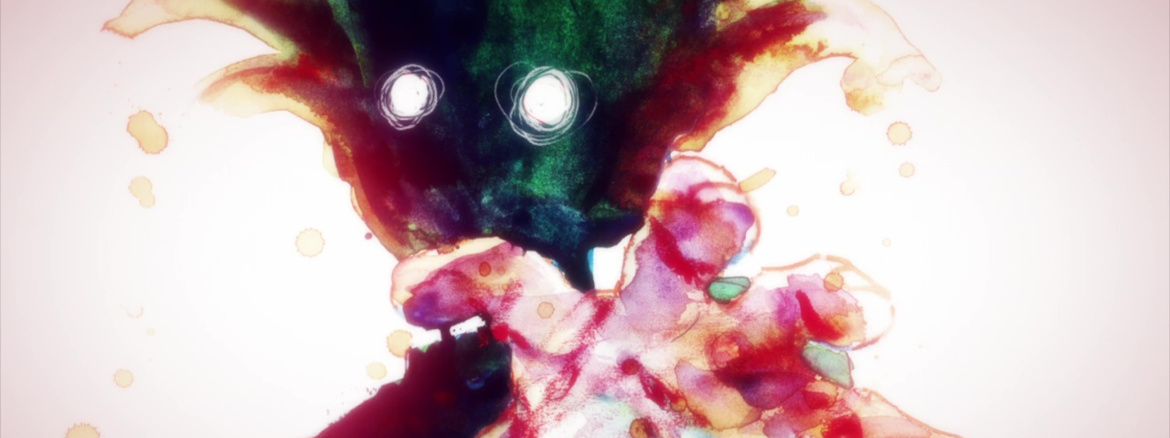
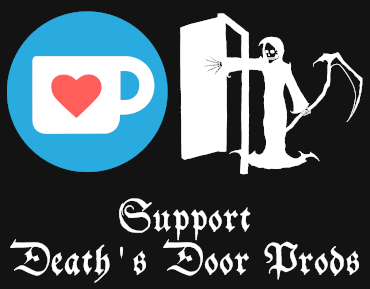

Add comment